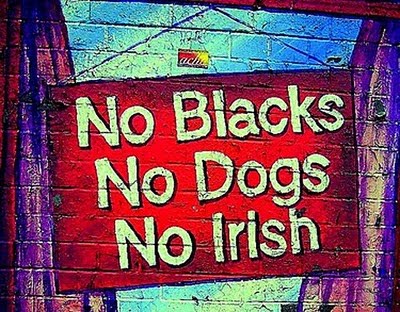Came across this little ditty last night: a poem by Aurelius Prudentius Clemens, a Christian Roman in the late 4th century AD. He apparently ended up as an ascetic…
Tag Archives: Scotti
Vox Hiberionacum: Patrick and the Voicing of Early Irish Identity [Part 1]
 One of many interesting facets of Patrician history and hagiography is the role that the saint has played in the creation and maintenance of both religious and cultural identities throughout Ireland and the rest of the world. Due to the enigmatic nature of his writings and the wholesale absence of ‘fixed’ historical & geographical points within them; Patrick has always been seen as an everyman figure for anyone who wishes to claim him.
One of many interesting facets of Patrician history and hagiography is the role that the saint has played in the creation and maintenance of both religious and cultural identities throughout Ireland and the rest of the world. Due to the enigmatic nature of his writings and the wholesale absence of ‘fixed’ historical & geographical points within them; Patrick has always been seen as an everyman figure for anyone who wishes to claim him.
Various religious identities in Ireland and Scotland have, at one stage or another, claimed legitimacy and descent from a church allegedly founded by him (Some still do!). Irish emigration in the eighteenth & nineteenth centuries used him as a vehicle for the expression of both ethnic and martial identity abroad. Irish independence in the twentieth century and more recently, increasing devolution within the United Kingdom has resulted in even more cultural avenues that occasionally seek to reach out and connect with him across the centuries.
Allowing for over-simplification, its easy to see why: Patrick was a (fifth century) Briton, most likely from an area bordering modern-day Scotland; who grew up speaking a form of early Welsh (Brythonic); who then spent considerable time in Ireland, speaking Irish, and writing to fellow Christians elsewhere in Latin. To any modern-day audiences seeking to view him in such a light; the historical Patrick offers up the very epitome of an early medieval multicultural mongrel.  Continue reading
Continue reading

